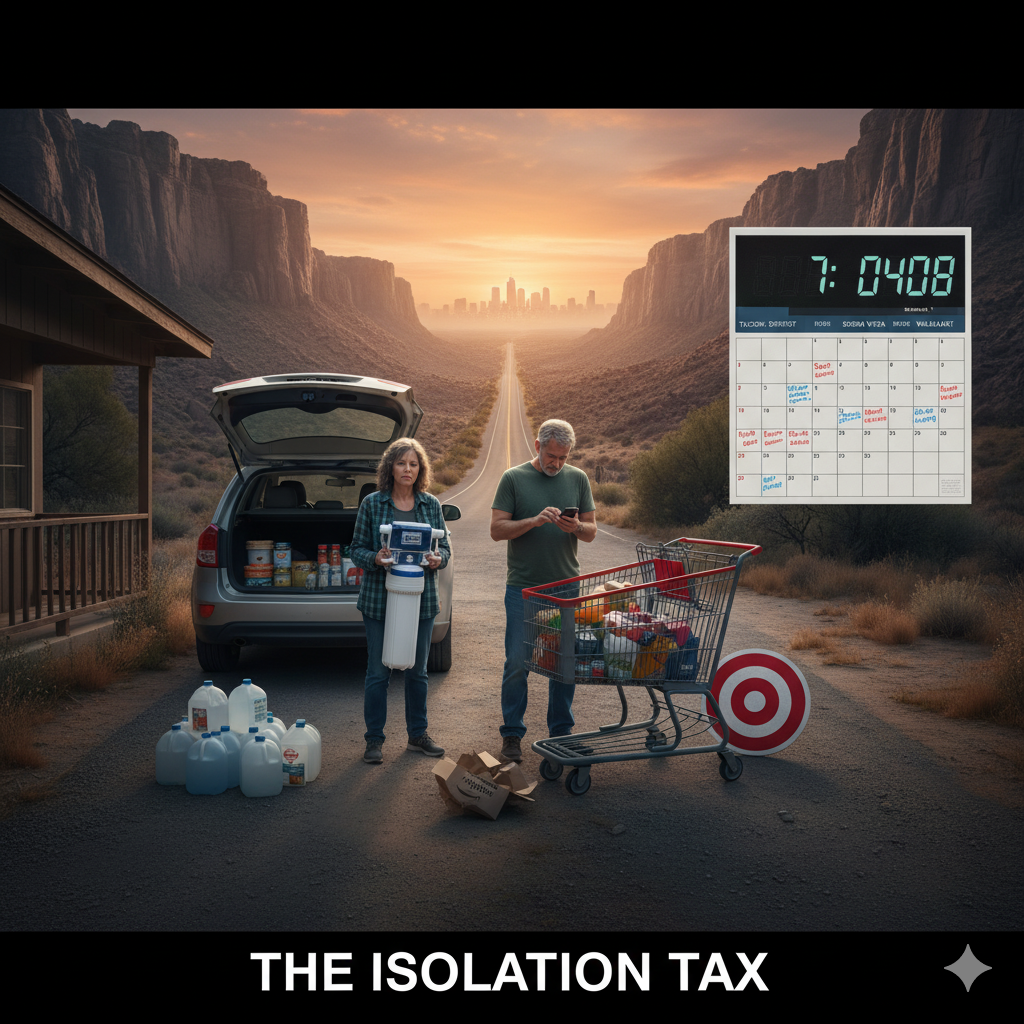Last updated on October 29, 2025
The allure of a remote, peaceful life is a powerful one. You imagine quiet mornings, starry nights, and a blissful disconnect from the noise of the modern world. In Bisbee, you will get the disconnect, but it is far from blissful. It is a state of profound, inconvenient, and expensive isolation. For every modern good, service, or convenience, you will pay a hidden fee—the Isolation Tax. This tax is not paid in dollars, but in your time, your gas money, and your sanity.
Let’s start with the most basic necessity: shopping. Bisbee has one major grocery store. The selection is limited, the produce is often tired from its long journey, and the prices are inflated to capitalize on a captive market. For anything beyond the basics—organic foods, specialty ingredients, or just competitive pricing—you must embark on a pilgrimage. The nearest town with a Walmart or a Target is Sierra Vista, a 45-minute drive each way. For a trip to Costco or Trader Joe’s, you’re committing to a three-hour round trip to Tucson. A simple shopping run becomes an all-day, gas-guzzling ordeal.
This applies to everything. Need new shoes? Plan a day trip. Want to browse a bookstore with more than a few curated shelves? Plan a day trip. Does your car need a specific part or a skilled mechanic? You’re likely heading to Tucson. Amazon Prime’s two-day shipping promise is a cruel joke here; packages are frequently delayed, misdelivered, or just lost in the shuffle of rural delivery routes. You are fundamentally cut off from the seamless consumer ecosystem that the rest of the developed world takes for granted.
The Isolation Tax is steepest when it comes to healthcare. As we’ve mentioned, any specialized medical need requires a trip to Tucson. This isn’t just for major surgery; it’s for the routine appointments that keep you healthy. Your semi-annual dental cleaning, your yearly eye exam, a consultation with a dermatologist—each one is a full-day commitment. This constant travel is draining for a healthy person and can be an insurmountable barrier for the elderly or those with chronic illnesses, the very people the town seems to attract.
This remoteness also creates a cultural vacuum. There are no first-run movie theaters. Touring bands and theater productions do not come here. Museums, lectures, and diverse culinary experiences are all 90 miles away. While the town has its own brand of local culture, it is a small, closed loop. The lack of outside stimulus, of new ideas and new experiences, leads to a palpable sense of stagnation. The canyon walls that seemed so beautiful on your first visit can begin to feel like the walls of a prison, and the quiet you sought becomes a deafening silence. The peace you were promised is, in fact, a slow-acting sedative, dulling your senses and shrinking your world until the canyon is all you know.
